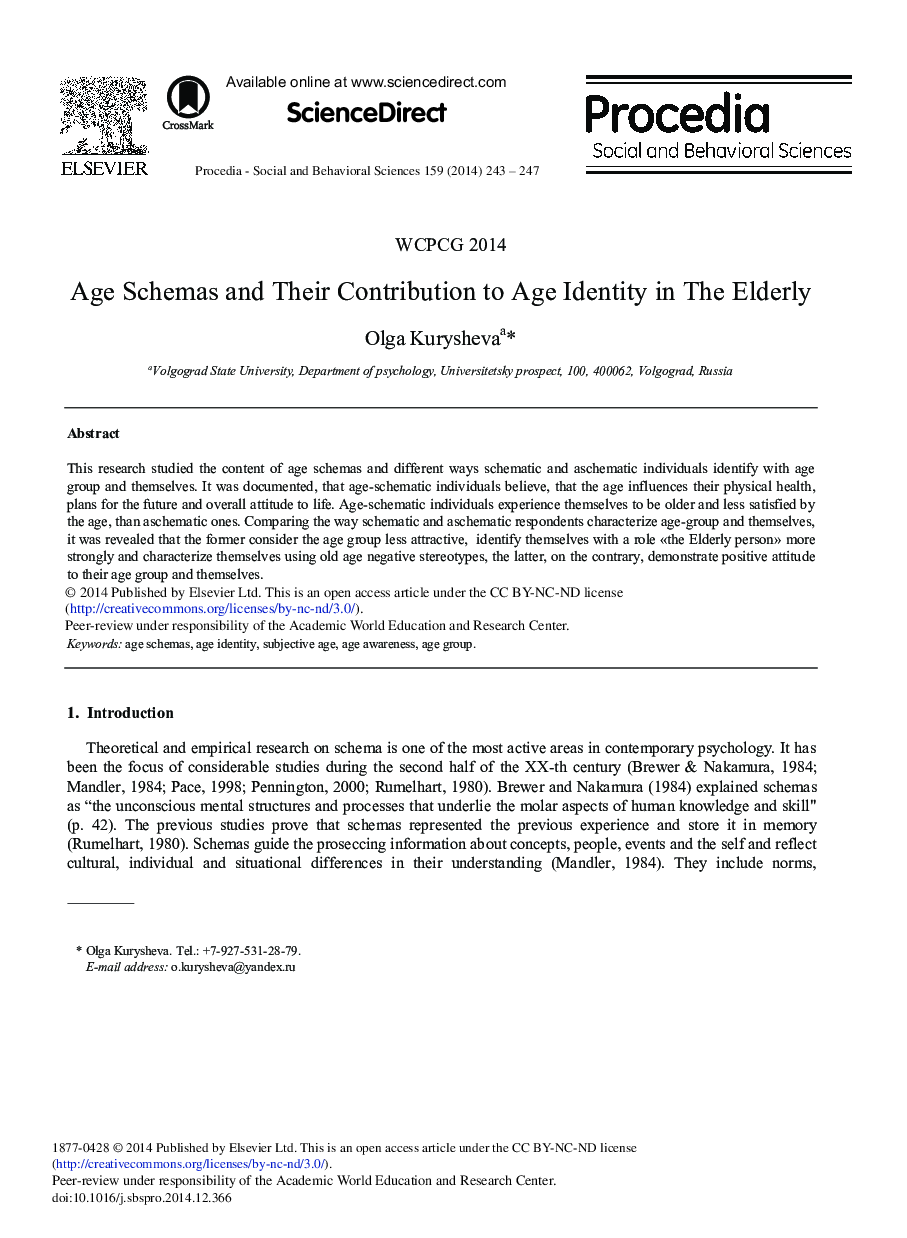| Article ID | Journal | Published Year | Pages | File Type |
|---|---|---|---|---|
| 1112397 | Procedia - Social and Behavioral Sciences | 2014 | 5 Pages |
This research studied the content of age schemas and different ways schematic and aschematic individuals identify with age group and themselves. It was documented, that age-schematic individuals believe, that the age influences their physical health, plans for the future and overall attitude to life. Age-schematic individuals experience themselves to be older and less satisfied by the age, than aschematic ones. Comparing the way schematic and aschematic respondents characterize age-group and themselves, it was revealed that the former consider the age group less attractive, identify themselves with a role «the Elderly person» more strongly and characterize themselves using old age negative stereotypes, the latter, on the contrary, demonstrate positive attitude to their age group and themselves.
